- Home
- Johnny D. Boggs
The Fall of Abilene Page 8
The Fall of Abilene Read online
Page 8
Hardin paid no attention to the sign, nor to all the horses at the hitching rail. He turned his horse east, then south, and we rode to the Devil’s Addition.
“Here’s where you earn your keep, Counting Boy,” Hardin said as he stopped in front of a place with sod walls and a tarp for a roof. After dismounting, he tied his horse up and adjusted his revolvers. He had thrown all of his old clothes, except for his vest, in a trash bin at the Frenchman’s place. And although he had worn a new vest when he had his photograph taken, now he donned the old one, his .44 revolvers shoved into the scabbards.
This saloon had no door, or name, so I could easily hear the clicking of spinning roulette wheels, shouts, curses, and laughter from inside.
“What do I have to do?” I asked.
“Make sure I don’t lose.”
* * * * *
Hardin played vingt-et-un—or so the dealer called it—but Hardin said it was twenty-one. I knew that already, having played some with Sam on the drive. And I knew why Hardin had brought me along: to remember what cards had been played.
“Is the boy playing?” the dealer asked after a few hands.
“He’s an orphan,” Hardin said. “I can’t let him out of my sight. A promise I made to his father, after I shot the bastard.”
The dealer didn’t say much after that until Hardin started winning.
“Either you play,” he says, “or the orphan plays. Or both of you play. And keep your damned mouths shut.”
Hardin tossed a few greenbacks toward the dealer with a laugh. “All right. Set them up for both of us. Split that Yankee cash up even for the orphan and me.”
I couldn’t see what the fuss was over counting cards. Maybe it wasn’t honest that Hardin and I had devised a plan, where I’d tap the side of his boot with the toe of mine if he should take a card or stand. I didn’t think too much of that—because it didn’t work all of the time. I mean, I tapped Hardin to take a card a few times, and he busted, cursing and glaring at me. Maybe two times I signaled for him to stand, and the next card would’ve improved his hand. But we won most of the time. In fact, I doubled my stake. Hardin, playing more aggressively, betting a whole lot more than I would ever be comfortable with—at least back then—quadrupled his.
The owner of this bucket of blood came over. “Lucky,” he said.
“Thanks,” Hardin said.
“Be lucky somewhere else.” He showed us the twin barrels of a sawed-off shotgun.
When Hardin turned to the pudgy, pockmarked man with the scatter-gun, the dealer lowered his right hand behind his back. Hardin didn’t even look away from the owner, but he knew, saying: “If your boy touches that pistol, I’ll kill him and you both.”
The dealer stopped moving. The owner just laughed. “You wouldn’t have a chance, Tex.”
Hardin smiled. “That’s what those greasers thought back on the Little Arkansas, too.” He pronounced it the Texas, not the Kansas, way. “I’m Little Arkansas.”
The smile vanished, but the shotgun didn’t budge.
“You haven’t cocked those hammers on that twelve gauge,” Hardin said. “That was your first mistake. So you’ll be dead before you can.”
The man glanced at the shotgun, and when he did, Hardin filled one hand with a Colt. Before the pockmarked man could react, he pressed the barrel against the fellow’s bulbous nose. The dealer had not budged.
“You’re still leaving,” said the owner, who had sand.
The cocked .44 made him cross-eyed, but he did not back down. Hardin admired that.
“I’m leaving,” Hardin said, backing up and nodding. “But if I see you near me, I’ll assume you’re trying to get your money back. And the orphan and I always shoot first.”
“Just take your winnings, have a drink on the house, and don’t come back.”
“Agreed.” Hardin handed me his Army Colt and shook hands with both men before pocketing his cash, killing his free whiskey, and walking out.
Hardin had sand, too.
* * * * *
We each drank a beer and shot down two whiskeys at another place in the Devil’s Addition.
“What do you think, Counting Boy?” Hardin asked.
“I think I’d rather be called something rather than Counting Boy.” By that point, I was well in my cups.
“Like what?”
“Well, you’re Little Arkansas. What if I’m the Abilene Kid?”
Hardin sniggered. “How many penny dreadfuls do you read? The Abilene Kid, huh?” He snorted. “All right, Abilene, let’s find us another place to win some more money.”
Now that I think back on it, we must have visited other gambling parlors or saloons, but I lost track of most of that day and evening until we staggered out of Thomas Downey’s Saloon.
It was dark.
“How are you at rolling tenpins?” Hardin asked.
“I can count to ten.” I felt downright giddy.
Hardin spit into the street. “You’re drunker than you were at the Sundowner.”
I had to think about that, which led to a smile, even though I did not recall which grog shop had been the Sundowner. “I guess I am,” I happily agreed.
Hardin gestured at the neighboring building. It wasn’t much of a building, and all the sign said was A. V. Thompson: Ball Alley, but from inside came an awful clanging and clattering that began to rock my head. Never had I heard such commotion.
We entered the small building to a thunderous noise. It never ceased. Rolling. Smashing. Clattering. Folks were rolling balls at some weirdly shaped bottles—called pins, I learned—a right fair piece down these narrow aisles. Whether they missed, or knocked down a few, I ducked every time it happened.
“Give it a whirl, Abilene,” Hardin said after giving some money to a girl.
I knocked down all ten of those pins with just one roll of a heavy ball.
“You’re not just good at counting,” Hardin commented.
If you’ve never rolled tenpins, know that it’s not easy to get a good start and let that ball fall just right when your brand new McInerney boots are pinching your feet because you haven’t had time to soak them in water and let the leather dry to fit your feet.
Well, pretty soon, a lot of folks, even the owner of the ball alley, Mr. A. V.—that’s what he told us to call him, Mr. A. V., not just A. V. or Mr. Thompson. Mr. A. V. said he hailed from Texas, and he spoke like he did. This young guy in the funniest getup I’d ever seen came over a while later, but he did not sound Texan. He said he came from Yale. Had to explain that was a college back East. And that he had been expelled.
The dude’s name was Yancy Zabokrtsky. He asked to roll some pins against me. Cocky by that time, I sniggered and agreed.
He beat me. Beat me again. And by this time, Hardin wasn’t happy because he had been betting on me. But I just kept plying myself with beer being brought over from Mr. Downey’s watering hole and knocking down pins left and right.
Yancy Zabokrtsky won again. I shook my head.
“Why did you get kicked out of that Yale school?” I asked.
“Rolling tenpins,” he said. “Instead of studying.”
We laughed. I beat him the next game and felt I could beat him again.
Everything suddenly turned really quiet while I waited for the boys in the back of the lane to stack up all those pins Yancy Zabokrtsky and I’d knocked down again.
A long-haired dude, wearing duds fancier than even Hardin’s new suit, was staring at us. He had a low-crowned black hat, a frilly shirt, and a red sash that held two pistols. His guns were not concealed at all. The badge pinned onto a striped vest finally caught my attention.
Chapter Thirteen
“Do you know what time it is?” the long-haired man asked.
He was, I admired in silence, a striking figure. Handsome. Decked out in clothes
that must have set him back a bundle. Tall, steady, and cold. I couldn’t imagine he had ever known fear.
“Two-eleven,” I said. Roostered by this time, I pointed to the clock on the wall behind him.
“You trying to be funny, boy?” the long-haired man asked.
“No,” said Mr. A. V. “Swear to God, Hickok, there’s a Seth Thomas clock on the wall behind you.”
Hickok. I didn’t sober up, but my smile vanished.
“It’s Marshal Hickok to you,” the lawman said.
“Yes, sir. Marshal, sir. But there’s a clock …”
“And what time does it say?”
“Two … two-twelve.”
Wild Bill Hickok! I was staring at Wild Bill Hickok, a man I had heard about, read about, and he was right here in the same bowling alley with me.
“An ordinance was posted,” Hickok said. “Ran in the Chronicle better than a month ago. You were notified. Dram shops, billiard saloons, and bowling alleys are to be closed every night at or before midnight. Subject to a twenty-five dollar fine.”
“Well, Marshal,” Mr. A. V. said, “the herds just started arriving a couple of weeks ago. This is a good time for business. And nobody has been following that little law. And you haven’t complained none. Nor have the councilmen. Besides, I have to pay a license of twenty-five dollars a year.”
“And now you have to pay a twenty-five dollar fine.”
“Of which you get … how much?”
“Don’t try that with me.”
“Janice!” Mr. A. V. called out to his sweet-looking blonde assistant. “Fetch me the Chronicle, if you’d be so kind.”
She ran to a corner desk and returned with a newspaper. Her smile stretched bigger than Mr. A. V.’s, and I figured, even in my state of inebriation, that they had been planning this. She handed the paper to Hickok.
“Read it.” She giggled.
“You read it,” Hickok told her.
Her smile vanished. “I … I can’t …”
Sighing with disgust, Yancy Zabokrtsky started to take the paper but stopped when Hardin said: “Give it to the Abilene Kid.”
Hickok’s cold eyes turned to Hardin, who pushed back his hat and smiled at the lawman. “He reads right well,” Hardin said. “But he counts a whole lot better.”
Janice gave me the paper.
Mr. A. V. said: “It’s the notice, says ‘an ordinance,’ next to the advertisement for Hand’s gun shop.”
It wasn’t long. I wasn’t that drunk. I read:
AN ORDINANCE
PRESCRIBING THE TIME AT WHICH DRAM SHOPS SHALL BE CLOSED
be it advised by the mayor and councilmen of
the city of abilene:
sec 1. that all dram shops, billiard saloons, and bowling alleys shall be closed every night at or before 12 o’clock p.m.
sec 2. any person violating …
That’s all I got through before Mr. A. V. told me to stop.
“Don’t you see the problem, Marshal?”
Hickok waited.
“It’s the time. Twelve o’clock p.m. That’s noon. Not midnight.”
“If you want to be technical,” Yancy Zabokrtsky said. “It’s neither. Noon is noon. Midnight is midnight. There is no twelve a.m. or twelve p.m. A.M. stands for the Latin, ante meridiem, which means …”
“Before midday,” Hickok finished.
Yancy Zabokrtsky’s eyelids arched.
“P.M. means post meridiem,” Hickok said. “After midday.”
“So,” Mr. A. V. said, “you see the mistake your fine mayor and councilmen made.”
“Twelve o’clock is midday or midnight exactly,” Yancy Zabokrtsky insisted. “There’s no before or after.”
“Then we are in agreement?” the tenpin alley’s owner said.
I returned the newspaper to him.
Yancy Zabokrtsky yelled for the boys to finish stacking the pins.
“What’s your name, Paper Collar?” Hickok asked the expelled Yale dude.
Yancy Zabokrtsky told him.
“There’s an eastbound leaving at five a.m.” He stressed the a.m. “Be on it.”
“But …”
Hickok’s eyes silenced him. “Get out of here,” Hickok said. “Now. All of you.”
“But …” Mr. A. V. started.
One of the revolvers appeared in Hickok’s right hand. “Do you know what happened to the last person who played me for a fool?” He cocked the Navy. It sounded even louder than when all four of those bowling lanes were occupied.
For a city boy in funny shoes, Yancy Zabokrtsky moved fast.
Mr. A. V., Janice, and the other patrons also made a beeline for the front door, but when Hardin took a step, Hickok turned the pistol toward Hardin.
“Not you,” Hickok said. “And not you, either.” He did not even look at me, but I understood he meant me.
“New to town?” Hickok asked.
“Rode in this morning,” Hardin answered.
“Cowboys?”
“Working for Mr. Columbus Carroll.”
Hickok lowered the hammer on his .36 and slowly slid it expertly into his sash.
“I’ve met him. Seems like a fair man.”
“He’s all right.” Hardin’s eyes lifted to the wall clock. “But it is later than we thought. Abilene and I should return to the herd.”
“That’s a fine plan, Hardin.”
Hardin’s eyes left the clock. “My name’s Clements,” he lied. “Wesley Clements.”
“Also known as Little Arkansas?” Hickok used the Kansas pronunciation.
“Well, hell, Marshal,” Hardin said lightly, “you know I’m from Texas. And nothing’s little in Texas.”
“I wouldn’t know,” Hickok said. “But I do know this. The carrying of a firearm in Abilene is subject to a seventy-five dollar fine. Per gun. You have two underneath that fine-looking duster. I’ll take them now, Hardin, and if you try anything, I’ll kill the kid first, and you next.”
“I … I … I don’t even have a gun,” I let the lawman know.
Hickok pushed the tails of his Prince Albert well behind his back, giving him easy access to the butts of the revolvers in his sash. But Hickok did not draw either of his pistols. He just reached his right hand out toward Hardin.
“I’ll take the iron, Hardin.”
Hardin shook his head. “The name’s Clements, Marshal. Wesley Clements. But I’ll oblige you.” He pushed back his linen duster, revealing the two old pistols.
“One at a time,” Hickok told him. “Gentle. Like you’re handling your newborn son.”
“These are my sons.” Grinning, Hardin gripped one Army’s butt, ever so slowly, twisted it around, and held out the .44, butt forward, for Hickok. The marshal’s left hand came up now, but in a move that I never caught—that’s the speed Wes possessed—Hardin reversed the Colt, spun it around, thumbed back the hammer, and stuck the revolver in Hickok’s face.
I had trouble controlling my bladder.
Hickok just laughed. “That?” He nodded at the relic Hardin held. “You killed thirty Mexicans on the Little Arkansas … with that?”
“And its twin brother. They’ll kill you, too, Marshal.” Hardin wasn’t joking. In fact, I suspect he believed that he had killed thirty Mexicans back down the trail.
“You’re game, Hardin,” Hickok said. “And fast.”
“And you’re about to be dead,” Hardin responded.
“Hell will have company,” Hickok said.
It seemed like all of Abilene had gone dead, cold quiet.
“Look at my right hand,” Hickok told him. “A little closer.”
My eyes went to that hand, to spot the twin barrels of a derringer. Neither Hardin nor I had noticed the hideaway gun. He must have palmed it out of his coat pocket when
he had been pushing back his coattails.
“When you get around to writing your life history,” Hickok told him, “best leave that part out.”
That’s when Hardin laughed. The hammer lowered, and the Colt did, too. Hickok’s derringer, however, did not budge.
“You thirsty?” Hickok asked.
“I’m Texan.”
The lawman grinned. “Let’s have a talk over a gin and bitters. My treat. The Applejack’s a good place.” He glanced at me. “The kid can come, too.” Only then did Hickok return the derringer to the coat pocket.
* * * * *
I can’t remember even where the Applejack was. I do know the bartender called the marshal Jim, not Wild Bill or marshal. And that we went into a back room, where a pretty woman in a sparkling dress brought us three glasses, a bottle, and three steaming mugs of coffee. There were doughnuts, too. Doughnuts, coffee, and gin and bitters. A feast for kings.
“I can have you posted, Wes.” Hickok had befriended Hardin enough on the way over to the saloon to call him Wes.
“I’m posted down in Texas,” Hardin said. “Fact is, you can find wanted posters on me for murder, attempted murder, and for just being damned ornery from the Río Grande to the Red River. So I don’t rightly care if you post me in Kansas or Nebraska or all the way to Canada.”
The lawman chewed on a doughnut, wiped grease and sugar off his fingertips onto a napkin, and shook his head.
“It’s not that kind of posting,” Hickok said.
Hardin drank his gin and bitters, but I could tell he didn’t care too much for the taste. But I gorged myself on another.
“This kind of posting is more like a deal,” Hickok explained. “A truce. I fix things for you by posting notice … nothing in writing, mind you, just letting my deputies, the town brass, and certain saloonkeepers know that it’s all right for you to keep your guns. As long as you play square with me, I’ll be square with you.”
Hardin looked skeptical. “I keep my guns?”
“Without any fear of arrest,” Hickok said.
Hardin grinned. “That’s been my plan all the way around. I wouldn’t have it any other way.”
“Understand this, Wes,” Hickok said, his face hardening. “A posting isn’t necessarily permanent. You keep your guns, but you follow my rules. You don’t get drunk and unruly. I’ll overlook it if you’re just drunk. Get drunk and start a row, the posting is nullified. Also, you keep your guns out of sight, you mind your business, you start no trouble.”

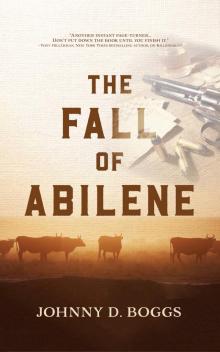 The Fall of Abilene
The Fall of Abilene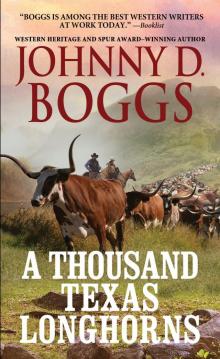 A Thousand Texas Longhorns
A Thousand Texas Longhorns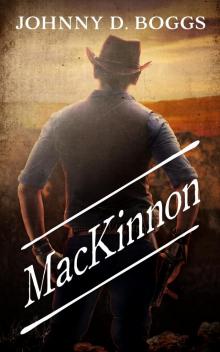 MacKinnon
MacKinnon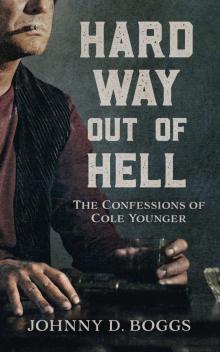 Hard Way Out of Hell
Hard Way Out of Hell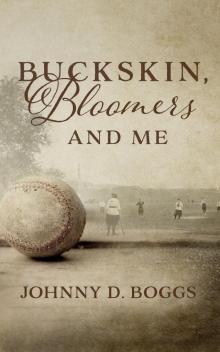 Buckskin, Bloomers, and Me
Buckskin, Bloomers, and Me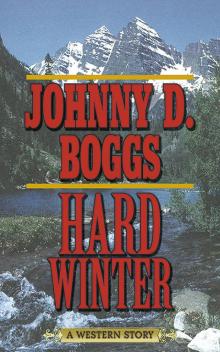 Hard Winter
Hard Winter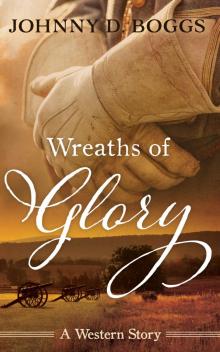 Wreaths of Glory
Wreaths of Glory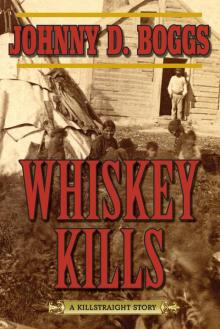 Whiskey Kills
Whiskey Kills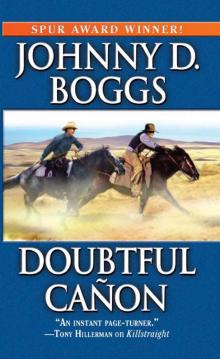 Doubtful Canon
Doubtful Canon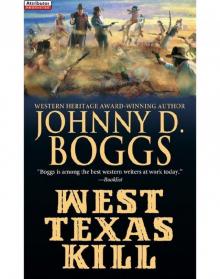 West Texas Kill
West Texas Kill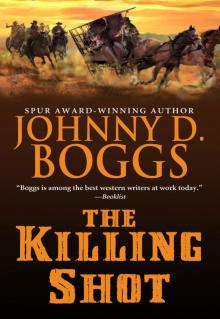 The Killing Shot
The Killing Shot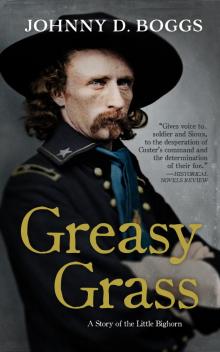 Greasy Grass
Greasy Grass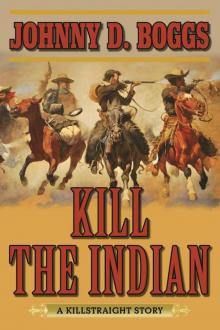 Kill the Indian
Kill the Indian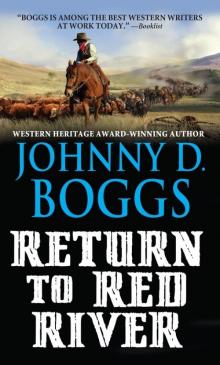 Return to Red River
Return to Red River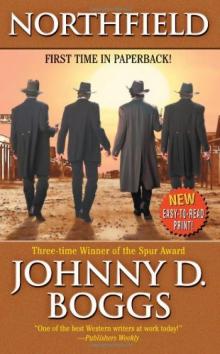 Northfield
Northfield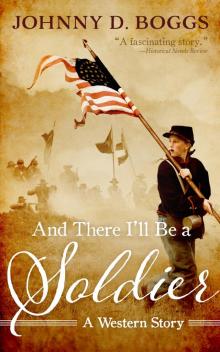 And There I’ll Be a Soldier
And There I’ll Be a Soldier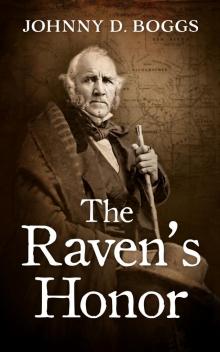 The Raven's Honor
The Raven's Honor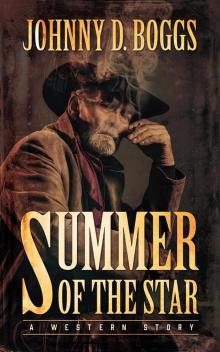 Summer of the Star
Summer of the Star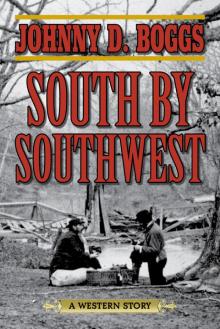 South by Southwest
South by Southwest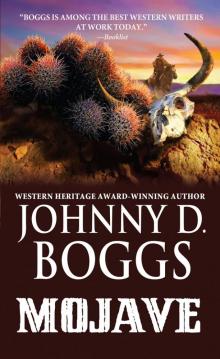 Mojave
Mojave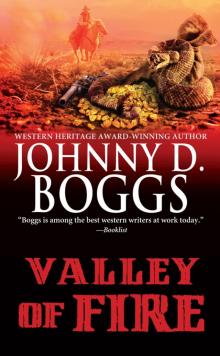 Valley of Fire
Valley of Fire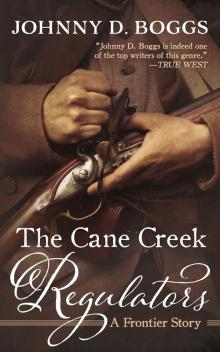 The Cane Creek Regulators
The Cane Creek Regulators